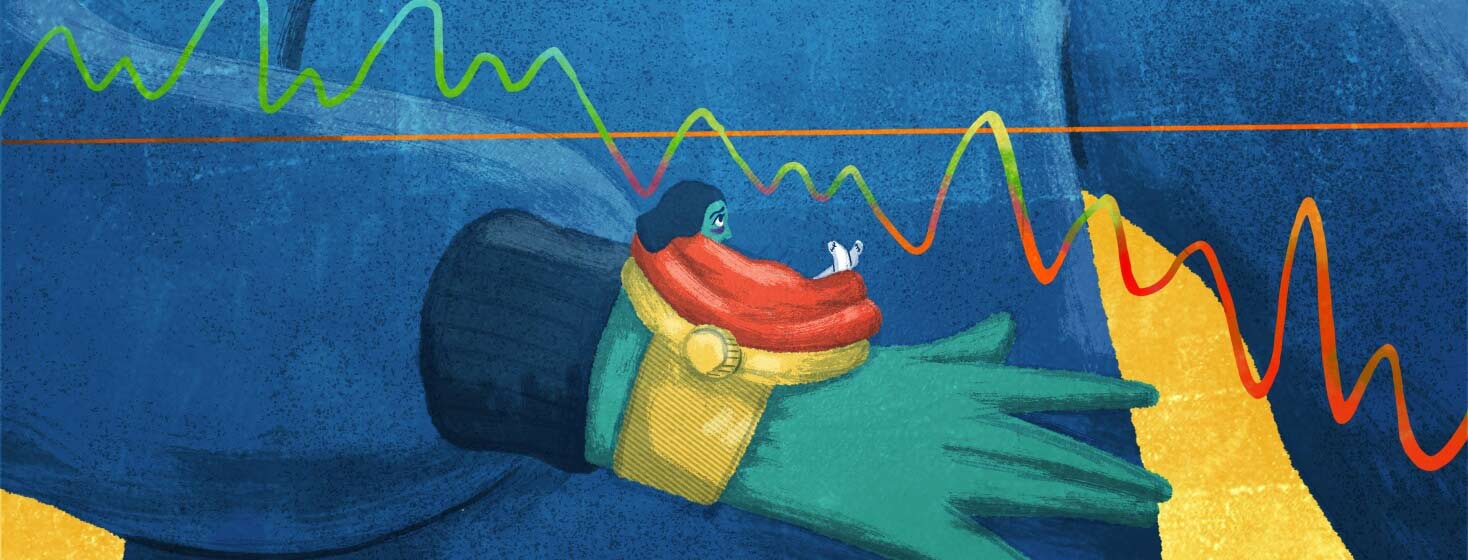My Sleep Improved When I Stopped Tracking It
Watches. Trackers. Apps. Monitors. You name it; I used it. I loved gadgets. And there were so many to play with and compare!
When I had insomnia, I monitored my sleep to within an inch of sleeping.
And I now understand how that monitoring and obsessive checking literally kept me from sleeping.
Sleep tracking did not improve my insomnia
One of the first pieces of advice I give to clients in my sleep clinic is to stop using their apps and watches and trackers to monitor their sleep.
Why? There are several reasons.
Sleep tracker reliability
The first reason is that the vast majority of commercially available products are not reliable in measuring sleep – especially sleep staging. They use accelerometers, which measure motion; some use heart rate technology as well.
But if you think about it – these devices and apps are being used to try to measure the sleep of people who are lying very, very still trying to sleep.
No need to keep track of time
But even if they were really accurate, I personally think they cause more harm than good. They allow people to know what time it is at night, which can generate sleep anxiety. Nobody really needs to know they've been awake for 47 minutes, starting at 3:22 AM.
It's not helpful or useful and only charges up our arousal and worries about being awake. If we don't know, we can let go of thinking about it more quickly.
Leaving the data interpretation to professionals
There is also no need to go into a detailed analysis of sleep in a home setting. It's not helpful to worry about what percentage is in what stage of sleep, and for how long, and what the graph looks like – it won't make sense to an untrained person, even if it was accurate.
And even if it was correct, the interpretation would need to be done by a trained professional in order to determine what (if any) problem existed, and a sleep medicine specialist could then decide what could be done about it. Again, this so-called "data" on people's phones and wrists give people something to hang their anxiety on, and it provides no helpful solution to the perceived "problem."
False sense of control over sleep
Trackers and apps give people a false sense of "control" over sleep. Monitoring encourages the idea that if a person knows when they wake up, what percentage of time they are sleeping in stage 3 non-REM sleep, etc. that they can then use it somehow to fix their sleep.
The only thing this false sense of control does is increase anxiety. We cannot control sleep – and the more we try to force it and make it happen, the worse people's sleep can become.
So what happened to me?
My sleep improved a fair bit as a result of not watching it so closely and focussing so intently upon it. I stopped watching the clock. I asked my partner to stop telling me what he thought of my sleep. I stopped looking to see what time different things happened. I stopped experimenting and trying to manipulate the app's output and instead focussed on living as healthy a life as I could.
Eliminating sleep monitoring wasn't the only thing I did to improve my sleep. Still, it was a solid and healthy start to my insomnia recovery.
Have you ever felt anxious about what your tracker told you? Have you ever stopped using it and felt a sense of relief? Or did it make you feel more anxious? I'd love to hear all about it!

Join the conversation